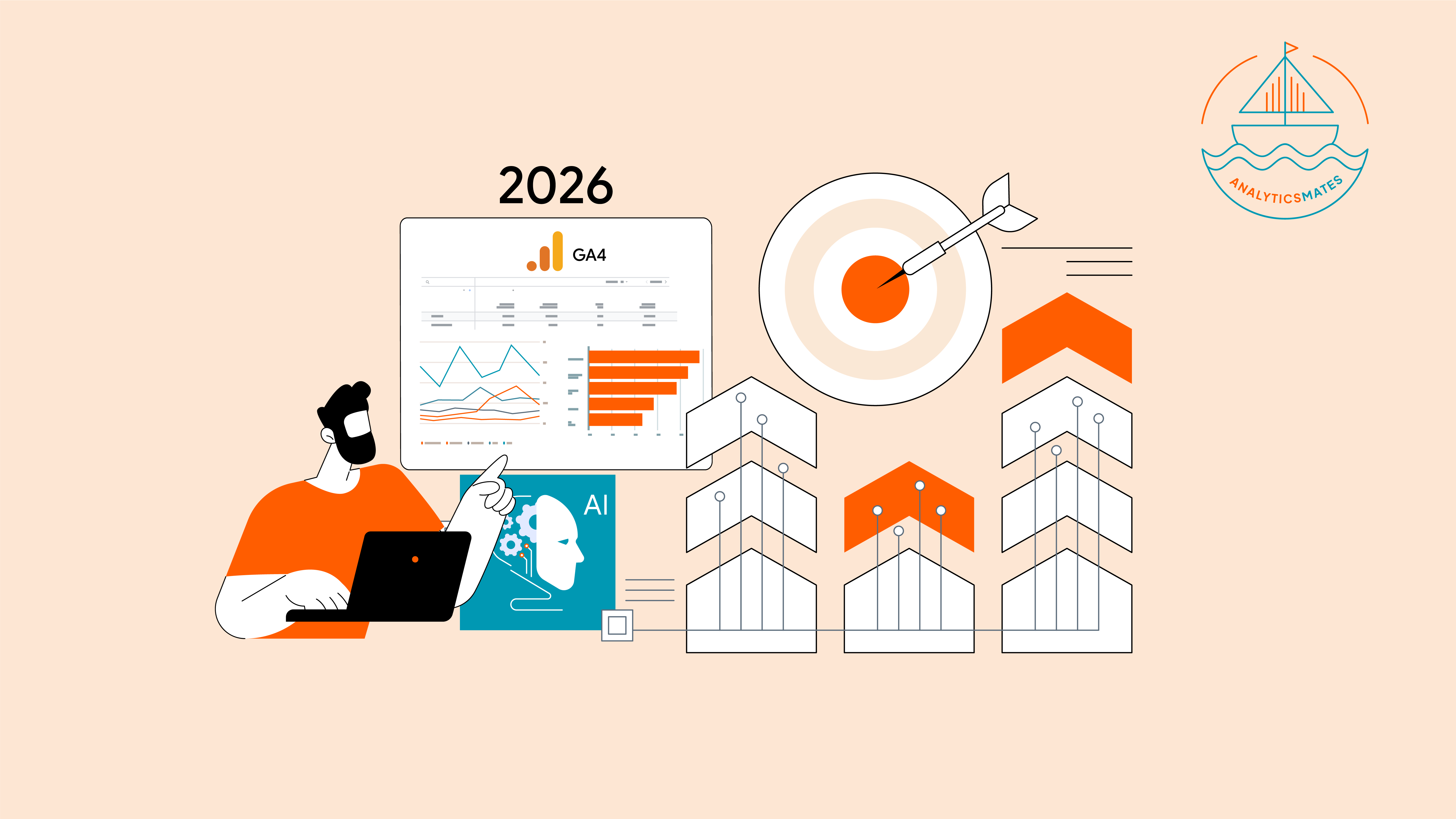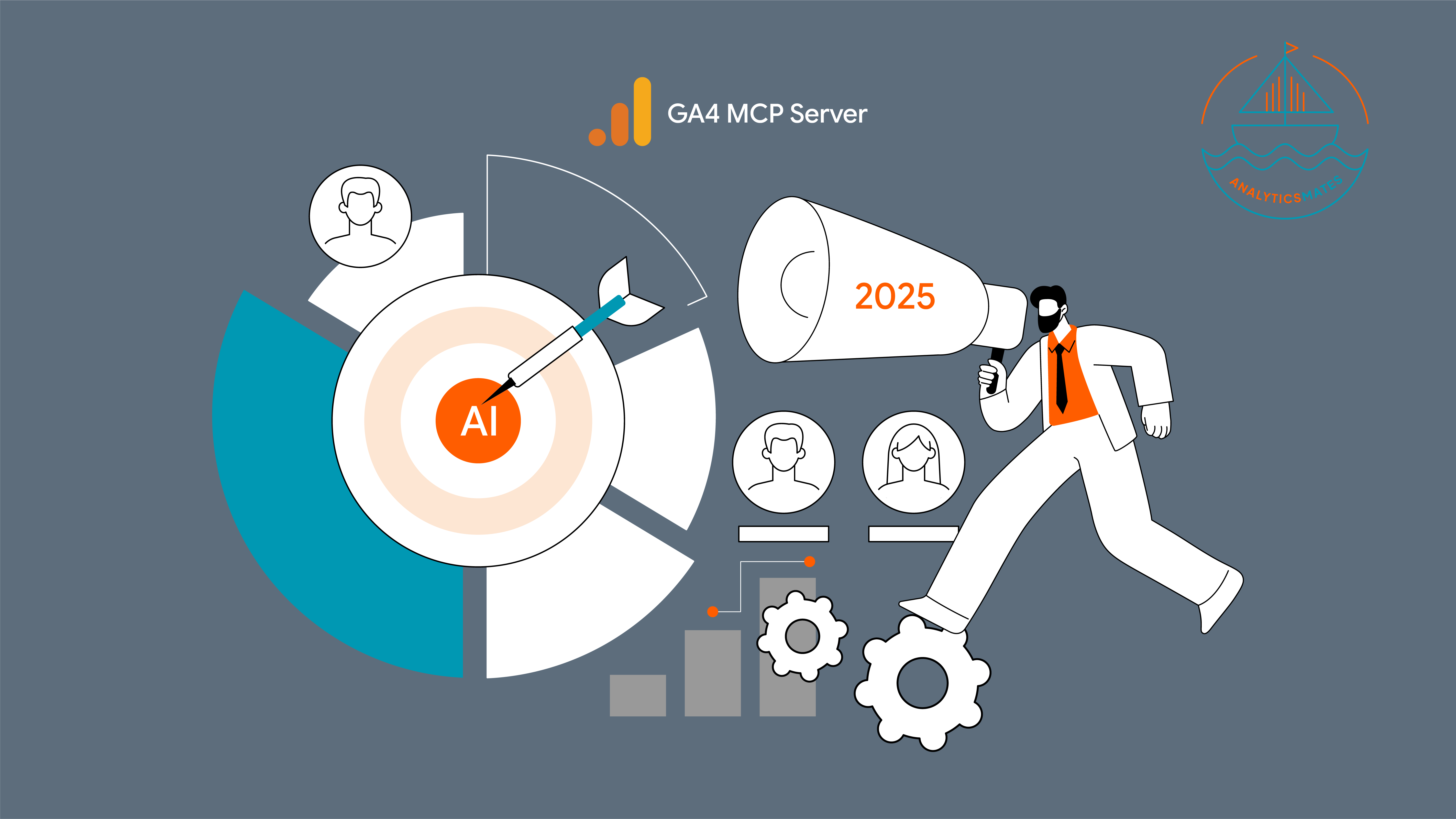Have you ever felt uneasy while browsing the internet, unsure about the security of your personal data? It's a common concern, especially considering the millions of users who fall victim to cyber threats and data breaches every year. This underscores the critical importance of prioritizing online safety and security measures. Fortunately, platforms like Google Analytics have implemented robust measures to safeguard users' data. By adhering to regulatory standards such as the GDPR (General Data Protection Regulation), they ensure that your information remains protected and your privacy respected.
In this blog post, we'll discuss user data control and provide insights on ensuring the safety of users' data. However, it's important to note that user privacy is a complex topic, and we'll only be touching the surface here. Our aim is to equip you with a foundational understanding of user data privacy as you embark on your journey with Google Analytics 4 (GA4).
What is GA4 GDPR?
By definition, GDPR is a regulation enforced by the European Union (EU) that aims to give control to individuals over their personal data and simplify the regulations for international business.
In short…It grants users rights to access, rectify, erase, and restrict processing of their personal data.
If users are not EU based, does GDPR still apply?
No, GDPR (General Data Protection Regulation) primarily applies to organizations that process the personal data of individuals located in the EU, regardless of the organization's location.
So, if your users are not EU-based, GDPR generally won't apply to your data collection practices.
However, there are some nuances to consider:
- Even if your users are currently non-EU, there's a chance you might need to consider GDPR in the future. If you plan to ever transfer that data outside your current jurisdiction and it ends up in the EU, GDPR might come into play.
- While GDPR might not directly apply, many regions worldwide have implemented their own data privacy laws inspired by GDPR. These might have some variations, but the core principle of user control over personal data is similar. A well-known example is the California Consumer Privacy Act (CCPA) in the US.
GA4's Approach to Personal Data
GA4 itself doesn't guarantee that it's not collecting personal data, but it offers several features and functionalities that can help minimize the collection of such data and potentially aid with GDPR compliance.
Here are some of the methods Google Analytics uses to ensure data privacy.
- GA4 focuses on events - Unlike its predecessor (Universal Analytics), GA4 uses an event-based data model. This means it collects data points associated with user actions on your website/app rather than focusing directly on Personally Identifiable Information (PII) like names or emails.
- GA4 anonymizes users IP addresses - For users in the EU, GA4 anonymizes IP addresses by default. This makes it harder to pinpoint an individual's location based on their IP address.
User Data Control - Website Owner Responsibility
While we expect Google Analytics to prevent users PII data not being collected. The main duty of safeguarding users personal data falls on the website owners. Here are some of the best practices that you, as website owner or must consider:
- You need to obtain clear user consent for data collection and explain how that data is used. By implementing Consent Mode, you’re allowing users to choose whether they want their data to be collected, limit only some data to be collected, or to fully opt out entirely. For more information about how Consent Mode works, you can read the full blog post here.
- GA4 allows setting data retention policies, which can help limit how long potentially personal data is stored. Google Analytics has introduced this feature to restrict the internal storage duration of user data. For more details about GA4 Data Retention you can check out the full blog post here.
- GA4 facilitates user data deletion upon request, fulfilling a GDPR requirement. Although GA4 doesn't inherently gather Personally Identifiable Information (PII) by default, there may be cases where website owners unintentionally collect PII data. In such instances, GA4 offers a feature that offers users to delete their data.
- Use GA4's configurability to collect only the data absolutely necessary for your analytics. Like for example event configuration: GA4 uses events to track user interactions. Carefully configure the events you track in GA4. Only collect data points that are absolutely essential for your analytics goals. Don't collect unnecessary information that doesn't provide valuable insights.
- Be clear with your privacy policy. Your privacy policy should explain what data is collected via GA4, how it's used, and user rights regarding their data. Here's our Privacy Policy for your reference.
So is GA4 GDPR compliant?
In essence, GA4 offers functionalities that can support GDPR compliance, but it doesn't automatically guarantee it. Website owners have the responsibility to implement essential practices for user consent, data minimization, security, and transparency to achieve full compliance.
Imagine GA4 as a powerful toolbox for website analytics. It has features like anonymization and data deletion that can be helpful for GDPR compliance. However, just having the tools in the box doesn't guarantee you've built a compliant house. This is the reason why website owners need to implement best practices for user consent, additional security, and those other bullet points mentioned above to achieve full GDPR compliance.
Frequently
What if my website targets users outside the EU? Does GDPR still apply?
GDPR primarily applies to organizations processing the data of individuals located in the EU. However, there are data privacy regulations being implemented in other regions as well (e.g., CCPA in California). It's a good practice to be generally aware of evolving data privacy regulations, especially if you have a global audience.
Should I consult with a privacy professional for GDPR compliance with GA4?
Consulting with a privacy professional is highly recommended, especially if you're unsure about the specific GDPR requirements that apply to your website and user base. They can help you navigate the complexities of GDPR and ensure you're taking the necessary steps for compliance.
I use GA4 to track user behavior on my e-commerce website. What specific data points should I consider minimizing?
When tracking user behavior on an e-commerce website, you can focus on collecting data related to product views, add-to-cart events, and purchase completions. Avoid collecting any personally identifiable information (PII) like names, addresses, or phone numbers unless absolutely necessary for processing orders. You can also explore anonymizing user IDs for added privacy.
What are the potential consequences of non-compliance with GDPR?
The GDPR outlines various penalties for non-compliance, including fines that can be significant for serious offenses. It's important to take GDPR compliance seriously to avoid potential legal and reputational risks.
Final Word
Remember, user privacy is an ongoing conversation. Staying updated on best practices and leveraging the tools available in GA4 allows you to make informed choices about your data. Be vigilant, prioritize security measures, and use the knowledge you've gained in this blog post to ensure protecting users' data.
Thank you for reading!
We're always looking for ways to improve our Google Analytics 4 blog content. Please share your feedback so we can make it even better.
See Article Images















